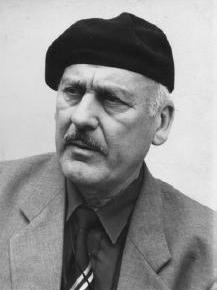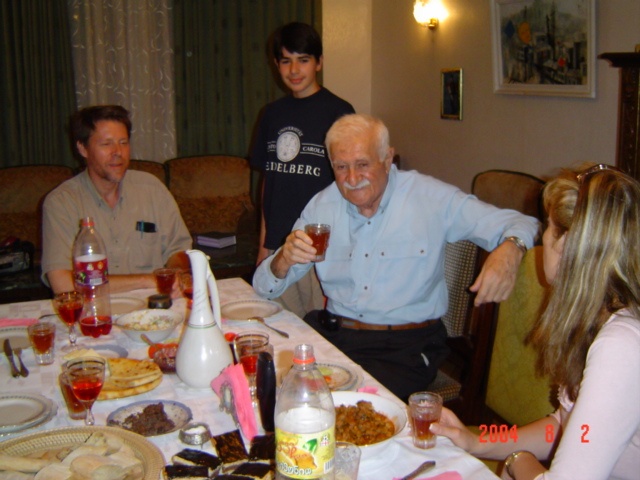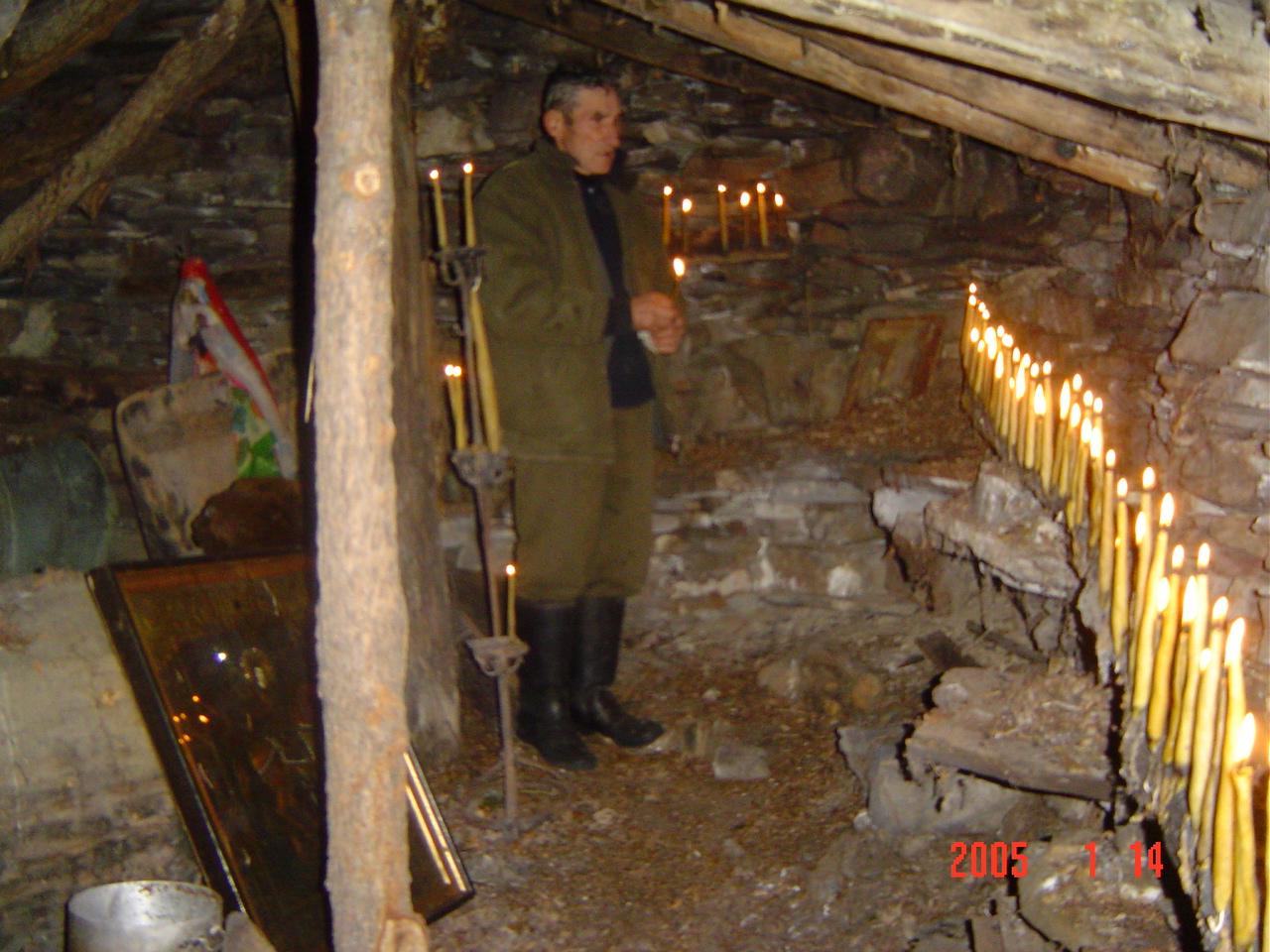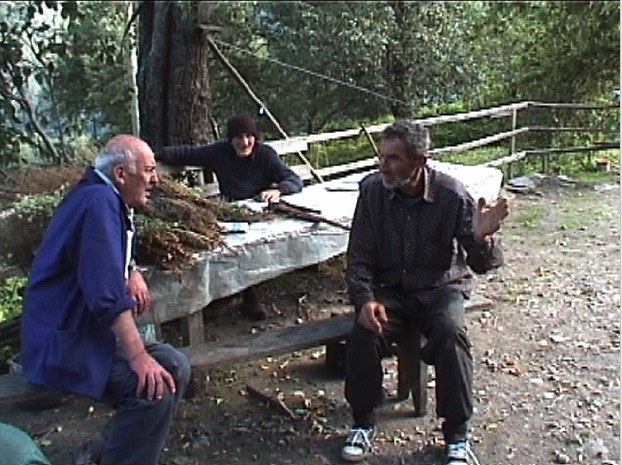Documentation

Tribute page: to those who are no
longer with us in body, but who remain with us in
spirit and memory.
As I get older, the list of those whom I talk about in
the past tense increases: people whom I met in the course
of over 30 years of fieldwork in Georgia, who became my
friends, colleagues and mentors, but are no longer among
the living.

After a distinguished military career as an officer in
World War II and the following years, Mirian Khutsishvili
joined the Janashia Georgian National Museum in Tbilisi.
During his long career at the museum, Mirian participated
in ethnographic expeditions throughout the Caucasus, and
pioneered the use of movie cameras in the field. His
photographic and film archives provide invaluable
documentation of the highland regions of Georgia and the
North Caucasus from the early 1960s to the present day.
But even more than for his work as a visual
anthropologist, Mirian will be remembered by all who knew
him for his wisdom, warmth, enthusiasm and humor, his
insatiable love for the mountains and the people who lived
there. I was privileged to have had the opportunity to
accompany Mirian on several fieldtrips in the past 15
years. Although older than my father, Mirian easily
outpaced my friends and me on the narrow mountains trails
of Pshavi and Khevsureti. Every person met along the way
was greeted by Mirian. If he did not know the individual
personally, he invariably knew his father or grandfather!
No professor taught me as much about ethnology as did
Mirian, as I observed how easily and wholeheartedly he
interacted with local people everywhere we went, and came
to appreciate his immensely rich treasure-trove of local
knowledge. Anthropologists will long remember Mirian
Khutsishvili's contributions to the ethnology of Georgia
and the Caucasus, but the most eloquent and heartfelt
testimonies to Mirian as a man will be heard in Tusheti,
Pshavi, Ingushetia, Gori, Chailuri and many, many other
places.
LINKS
The Georgian National Museum's Visual Anthropology Collection.
Documentary films "Pshavi" and "Mtiulet-Gudamaq'ari" (Ilia University Visual Anthropology Laboratory)
Konstantine (Kote) Choloqashvili კოტე ჩოლოყაშვილი
(1922-2013)

Konstantine (Kote)
Choloqashvili was born into one of Georgia’s most
illustrious princely families in 1922, a year after the
Red Army invaded his homeland. I was fortunate to have
gotten to know Kote and his wife Ketevan through their
daughter Rusudan, a colleague and close friend of mine.
Sharing a meal at the Choloqashvili’s table, with Kote
presiding, was an extraordinary, unforgettable
experience: on the one hand, a display of the art of the
tamada at the highest level — eloquence, humor,
deep knowledge of Georgian tradition and history, — but
at the same time, a warm, friendly family dinner. Kote
would sometimes talk about the tragic fate of his family
under the new Soviet regime, but while telling their
story Kote never showed bitterness, anger or the desire
for revenge. I will leave it to others to tell the
history of his ancestors, or discuss his career as an
ethnologist at the Georgian National Museum. I will
remember Batoni Kote as more than a nobleman by birth;
he was a noble man by character and example as well
Wikipedia
profile of Kote (in Georgian)
Obituary
(in Georgian)
Philipe (Pilo) Baghiauri ფილიპე ბაღიაური (1933-2019)

Until he passed away in
early 2019, Philipe (Pilo) Baghiauri was the chief
khevisberi of the shrine of St George in Gogolaurta
Commune, Pshavi. Pilo came from a long line of shrine
priests, including his father and predecessor Betsina
Baghiauri. I first met him in 1997, and over the years
he became my principal source on the vernacular religion
of northeastern Georgian highlands. Pilo was one of the
last khevisberis who received their call to service in
Soviet times, when the practice of traditional religion
was still discouraged by the authorities, and the
necessary knowledge was transmitted orally, by
observation and memorization. But for all of his immense
knowledge of ritual texts, practices and norms, Pilo was
refreshingly down-to-earth, unassuming and a pleasure to
be around. Along with a handful of other old-time
khevisberis (Ioseb Kochlishvili, to name one), Pilo
possessed what Georgian refer to as madli —
grace, virtue, or perhaps charisma in something like its
older sense. The vocation of khevisberi was never freely
chosen — Pilo and others of his generation described
their struggles against the will of their divine
patrons, and the heavy cost they paid for their
stubbornness — and there was no material recompense for
the burdensome responsibilities that they assumed once
in office. By North American standards, Pilo lived in
poverty, and yet he considered himself the richest man
alive. And I consider myself all the richer for having
known him.
Interview with Pilo
Baghiauri
Obituary
(Mtis Ambebi)
Video-blog
(Georgian)

Mirian Khutsishvili, Pilo Baghiauri & his mother,
2001, Pshavi
Felix Glonti ფელიქს ღლონტი
(1927-2012)
Dernière modification 2020